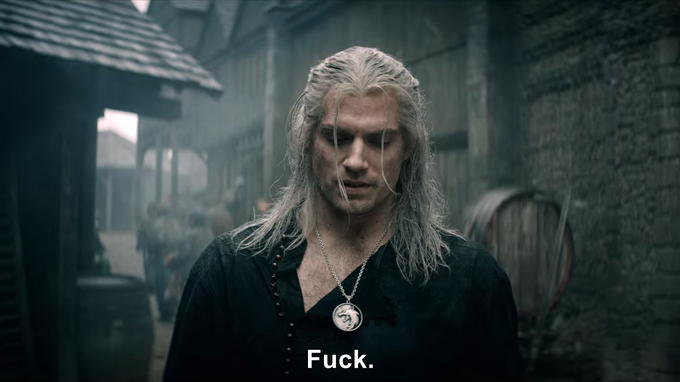Yesterday I saw an article written by a British author about how she apparently tried being a witch for a week. It was offensive and stupid in a way that would have made the Daily Mirror proud. Today (and sadly all too predictably), seemingly anyone and everyone who’s ever gotten their witch on is mad about this article.
But (and please don’t take this the wrong way), why do we care what this individual thinks?
Not All Challenges Are Worth Fighting
This article wasn’t some amazing takedown of anyone’s lives. It was little more  than clickbait masquerading as a so-called ‘enlightened’ and pro-science point about wider society. It was a collection of cheap shots against groups of people who already face discrimination in society. Rather than emerging as a ‘defender of science’, Ceri Bradford cast herself as the ‘mean girl’ that would be more at home in a schoolyard picking on the kid she hopes can’t fight back.
than clickbait masquerading as a so-called ‘enlightened’ and pro-science point about wider society. It was a collection of cheap shots against groups of people who already face discrimination in society. Rather than emerging as a ‘defender of science’, Ceri Bradford cast herself as the ‘mean girl’ that would be more at home in a schoolyard picking on the kid she hopes can’t fight back.
I mean, let’s face it. It’s not like any of us clicked on that link without even the tiniest sneaking suspicion that we were going into yet another mocking article about witches. That photo of her in a pointy hat was a dead giveaway; her facial expression reminds me of every drunk woman who ever picked a fight over nothing outside a kebab shop at 2 am.
And that’s what I think she’s doing here. I think she’s attempting to create drama because it will get her more clicks, more likes, and possibly lead to more work. I think she knew her work was going to cause upset, but I think she’s fine with that. Moreover, I suspect that no amount of complaining or appeals to decency will make her apologize or even feel vaguely bad (though it would be nice to be wrong here).
Target Selection for Bullies 101
The fact of the matter is that she could have made her alleged point about the rise in unscientific beliefs (if she even really cares about that) without punching down. After all, it’s not like virgin births, prayer (which is often magical in nature), resurrection of the dead, and transubstantiation are scientific either. Yet aside from the slight mention of religion in a general sense, she reserved all of her ire and mockery for those of us of minority faiths and practices.
In other words, she stuck to the people she doesn’t think can hurt her emotionally, legally, or professionally. She probably knows that rather than garnering a bunch of lol reacts, any article leveling that same style of mockery at Christianity would be met with disdain and/or censure.
And that, in my opinion, makes her a coward.
Oh Hai,Silver Lining!
Hit articles like this are nothing new in the UK press. I’m honestly surprised she wasn’t writing for the Daily Mail considering their long tradition of publishing hit pieces against Pagans and witches. And if anything, in a world of growing

evangelical zeal, I’d rather more people think us harmless and deluded than able to effect change using magic. Life is safer for us that way.
(I’m seriously considering getting her a card thanking her for helping to reinforce the idea we’re all just weirdos rather than minions of Satan, hellbent on taking down the nation with foul magics.)
So again, why do we care what she thinks? Why is her opinion worth anything to any of us? Perhaps the best responses to this are the ones she’d never see coming.


 book”, or “just a story”. Storytelling, in whichever form it takes, is inherently magical. It is the mirror that shows us who we are, shadows and all. But most importantly, it can be an agent for change. Especially when millions of people become emotionally invested in a story.
book”, or “just a story”. Storytelling, in whichever form it takes, is inherently magical. It is the mirror that shows us who we are, shadows and all. But most importantly, it can be an agent for change. Especially when millions of people become emotionally invested in a story. created through mysterious and deadly processes in order to fight the otherworldly and monstrous on the Continent. It sounds like the stereotypical D&D dungeon crawl (but on TV), right?
created through mysterious and deadly processes in order to fight the otherworldly and monstrous on the Continent. It sounds like the stereotypical D&D dungeon crawl (but on TV), right? cops on Black people for having the audacity to have a BBQ.
cops on Black people for having the audacity to have a BBQ. have become the person people go to for clearings at around the age of nineteen, but it really didn’t start there for me. I was very…popular…with all manner of beings as a kid, and a good percentage of them were quite harmful. So it’s a work in progress, and a lot of dealing with the old shadow baggage.
have become the person people go to for clearings at around the age of nineteen, but it really didn’t start there for me. I was very…popular…with all manner of beings as a kid, and a good percentage of them were quite harmful. So it’s a work in progress, and a lot of dealing with the old shadow baggage.